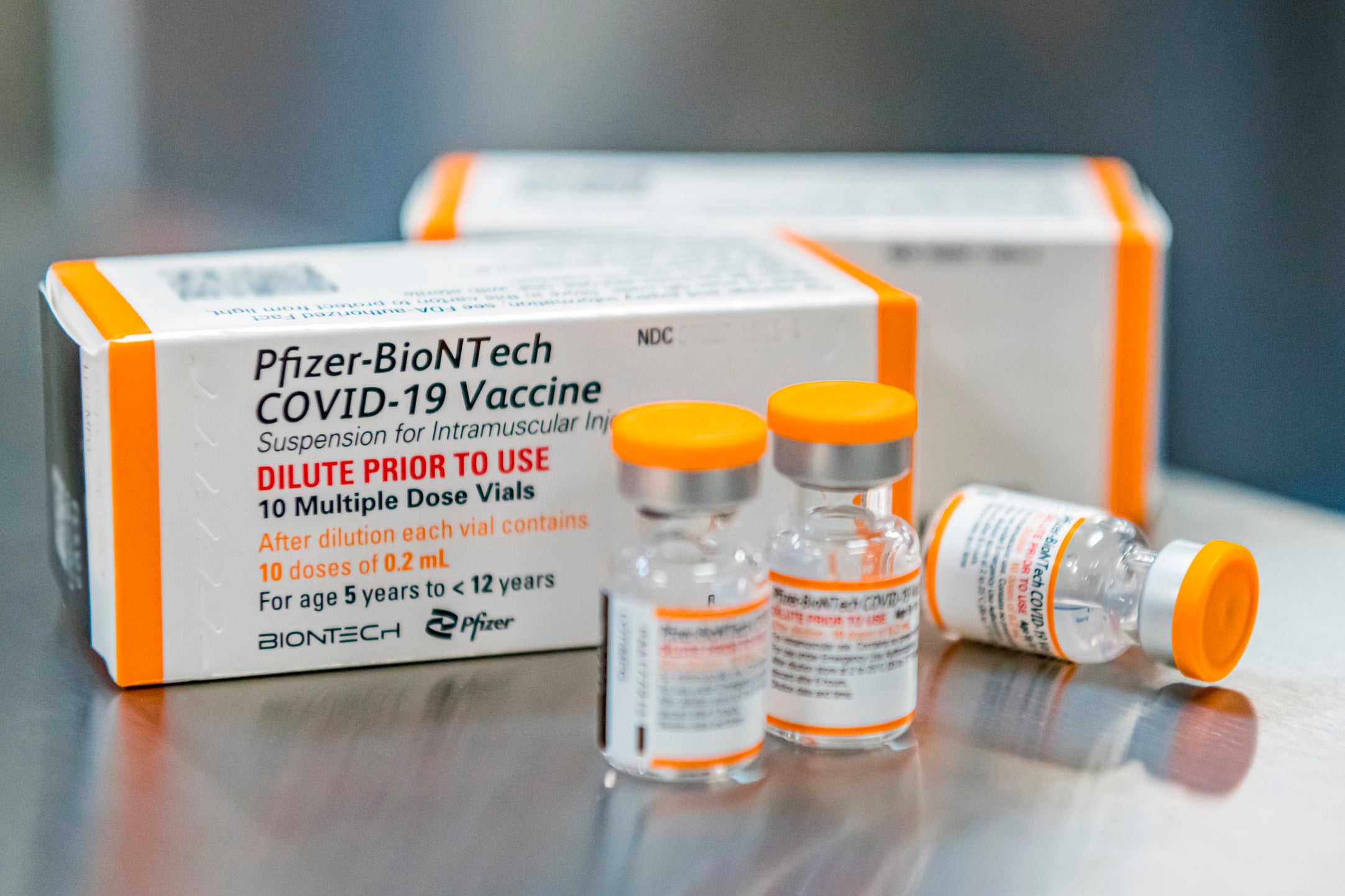CDC panel debates: Should all school kids get COVID vaccine?
A government advisory panel is set to discuss which schoolchildren should get Pfizer's pediatric COVID-19 vaccine

Your support helps us to tell the story
From reproductive rights to climate change to Big Tech, The Independent is on the ground when the story is developing. Whether it's investigating the financials of Elon Musk's pro-Trump PAC or producing our latest documentary, 'The A Word', which shines a light on the American women fighting for reproductive rights, we know how important it is to parse out the facts from the messaging.
At such a critical moment in US history, we need reporters on the ground. Your donation allows us to keep sending journalists to speak to both sides of the story.
The Independent is trusted by Americans across the entire political spectrum. And unlike many other quality news outlets, we choose not to lock Americans out of our reporting and analysis with paywalls. We believe quality journalism should be available to everyone, paid for by those who can afford it.
Your support makes all the difference.Should all school-age kids get Pfizer’s pediatric COVID-19 vaccine? That’s the question before an influential government advisory panel Tuesday.
The Food and Drug Administration has authorized emergency use of kid-size doses for children ages 5 to 11. But the Centers for Disease Control and Prevention also must sign off before widespread vaccinations begin in that age group.
CDC’s advisers are weighing who will get the most benefit as they deliberate whether to recommend the shots for up to 28 million more children, or perhaps only for those most vulnerable to serious illness. Their recommendation goes to the CDC director for the final say.
Shots into little arms could begin this week, as Pfizer already is packing and shipping the first orders, millions of doses, to states and pharmacies to be ready.
Doctors who’ve cared for hospitalized youngsters hope parents embrace Pfizer’s kid shots, saying they’re safe and far better than gambling that a child will escape a coronavirus infection.
“I’ve seen plenty of children in this age group that have been seriously ill,” said Dr. Matthew Linam, an infectious disease specialist at Children’s Healthcare of Atlanta. “The risk of significant infection is still very real in this population.”
While COVID-19 causes more serious illness in the old than the young, there have been more than 8,300 hospitalizations of kids ages 5 to 11, about a third requiring intensive care, according to government data. The FDA said 146 deaths have been reported in that age group.
And while the U.S. has seen a recent downturn in COVID-19 cases, experts are worried about another uptick with holiday travel and as winter sends more activity indoors where it’s easier for the coronavirus to spread.
Pfizer’s kid shots contain a third of the vaccine dose that’s already been used to vaccinate millions of people 12 and older. The 5- to 11-year-olds will receive two shots, three weeks apart, the same schedule as everyone else -- but a smaller amount in each shot, using a smaller needle.
A study of 2,268 youngsters found the kid-size vaccine is nearly 91% effective at preventing symptomatic COVID-19 -- based on 16 diagnoses among kids given dummy shots compared to just three who got the real vaccination.
The FDA examined more children, a total of 3,100 who were vaccinated, in concluding the shots are safe. The younger children experienced similar or fewer reactions -- such as sore arms, fever or achiness -- than teens or young adults get after larger doses.
That study wasn’t large enough to detect any extremely rare side effects, such as the heart inflammation that occasionally occurs after the second full-strength dose, mostly in young men and teen boys. The FDA ultimately decided the benefits from vaccination outweigh the potential that younger kids getting a smaller dose also might experience that rare risk.
The FDA’s decision came after its own advisers struggled with whether every young child needed a vaccine -- a key question in Tuesday’s deliberations, too. Youngsters hospitalized with COVID-19 are more likely to have high-risk conditions such as obesity or diabetes -- but otherwise healthy children can get seriously ill, too.
And many pediatricians and parents have clamored for protection for youngsters so they can resume normal childhood activities without risking their own health -- or the fear of bringing the virus home to a more vulnerable family member.
___
The Associated Press Health and Science Department receives support from the Howard Hughes Medical Institute’s Department of Science Education. The AP is solely responsible for all content.